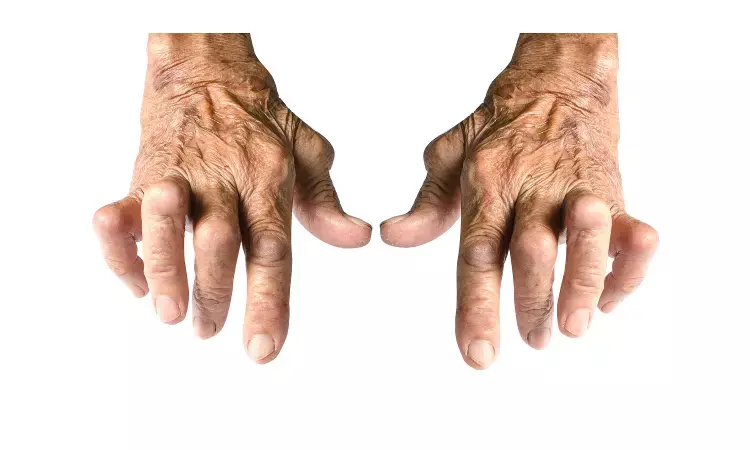- Home
- Medical news & Guidelines
- Anesthesiology
- Cardiology and CTVS
- Critical Care
- Dentistry
- Dermatology
- Diabetes and Endocrinology
- ENT
- Gastroenterology
- Medicine
- Nephrology
- Neurology
- Obstretics-Gynaecology
- Oncology
- Ophthalmology
- Orthopaedics
- Pediatrics-Neonatology
- Psychiatry
- Pulmonology
- Radiology
- Surgery
- Urology
- Laboratory Medicine
- Diet
- Nursing
- Paramedical
- Physiotherapy
- Health news
- Fact Check
- Bone Health Fact Check
- Brain Health Fact Check
- Cancer Related Fact Check
- Child Care Fact Check
- Dental and oral health fact check
- Diabetes and metabolic health fact check
- Diet and Nutrition Fact Check
- Eye and ENT Care Fact Check
- Fitness fact check
- Gut health fact check
- Heart health fact check
- Kidney health fact check
- Medical education fact check
- Men's health fact check
- Respiratory fact check
- Skin and hair care fact check
- Vaccine and Immunization fact check
- Women's health fact check
- AYUSH
- State News
- Andaman and Nicobar Islands
- Andhra Pradesh
- Arunachal Pradesh
- Assam
- Bihar
- Chandigarh
- Chattisgarh
- Dadra and Nagar Haveli
- Daman and Diu
- Delhi
- Goa
- Gujarat
- Haryana
- Himachal Pradesh
- Jammu & Kashmir
- Jharkhand
- Karnataka
- Kerala
- Ladakh
- Lakshadweep
- Madhya Pradesh
- Maharashtra
- Manipur
- Meghalaya
- Mizoram
- Nagaland
- Odisha
- Puducherry
- Punjab
- Rajasthan
- Sikkim
- Tamil Nadu
- Telangana
- Tripura
- Uttar Pradesh
- Uttrakhand
- West Bengal
- Medical Education
- Industry
Exercise reduces sarcopenia in rheumatoid arthritis patients, reveals study

Rheumatoid arthritis and age are usually associated with high sarcopenia risk. Exercise is an effective treatment for preventing muscle mass loss in older adult populations. Sarcopenia is characterized by loss of muscle strength and mass, leading to falls and adverse health outcomes. however it remains unclear whether exercise affects muscle mass in people with rheumatoid arthritis. Researchers conducted a meta-analysis ,Chun-De Liao and team found that exercise reduced risk of developing sarcopenia in elderly patients and therapy effectively increased muscle mass in patients with rheumatoid arthritis.
The study has been published in Clinical Rehabilitation.
The objective of the study was to investigate the effectiveness of exercise therapy in muscle mass gain in patients with rheumatoid arthritis and identify the moderators of treatment efficacy on muscle mass gain.
The study was conducted according to the guidelines recommended by the Preferred Reporting Items for Systematic Reviews and Meta-Analysis. Randomized controlled trials (RCTs) that reported the effects of exercise on muscle mass for rheumatoid arthritis were identified. The included RCTs were subject to meta-analysis and risk of bias assessment. Subgroup and random-effects meta-regression analyses were performed to identify any heterogeneity (I2) of treatment effects across studies.
The results of the study were
• Nine RCTs with a median PEDro score of 6/10 (range: 4/10–8/10).
• The weighted mean effect size for muscle mass was 0.77 (95% CI: 0.301.24; P = 0.001; I2 = 77%).
• Meta-regression analyses indicated that the disease duration significantly explained variance of treatment effects across studies (β = −0.006, R2 = 69.7%, P = 0.005).
Liao and team concluded that "Exercise therapy effectively increased muscle mass in patients with rheumatoid arthritis. Treatment effects may be attenuated in those who have had rheumatoid arthritis for a relatively long time."
For further information: https://doi.org/10.1177/02692155211035539
Medical Dialogues consists of a team of passionate medical/scientific writers, led by doctors and healthcare researchers. Our team efforts to bring you updated and timely news about the important happenings of the medical and healthcare sector. Our editorial team can be reached at editorial@medicaldialogues.in.
Dr Kamal Kant Kohli-MBBS, DTCD- a chest specialist with more than 30 years of practice and a flair for writing clinical articles, Dr Kamal Kant Kohli joined Medical Dialogues as a Chief Editor of Medical News. Besides writing articles, as an editor, he proofreads and verifies all the medical content published on Medical Dialogues including those coming from journals, studies,medical conferences,guidelines etc. Email: drkohli@medicaldialogues.in. Contact no. 011-43720751


